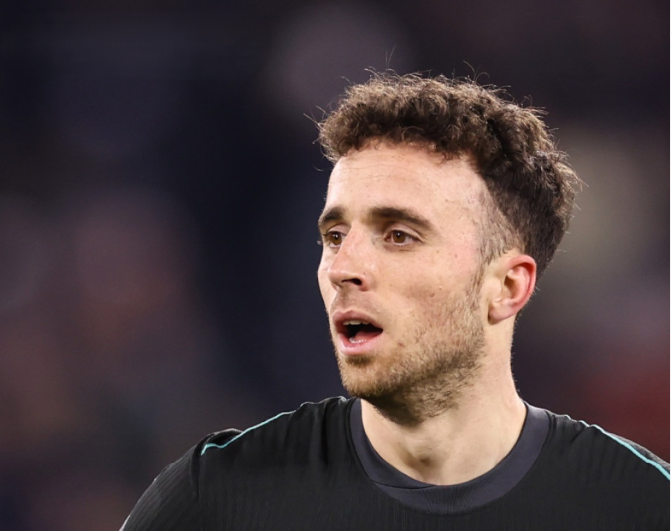Diogo Jota’s salary at Liverpool has come to represent both his worth on the field and the club’s perception of his significance. He was paid almost £140,000 per week after his contract was renewed in August 2022, which was a significant rise from the £90,000 he was previously making. That increase represented dependability, adaptability, and the value placed on forward players who make various contributions, not simply goals.
Both parties gained stability from the contract, which ran until 2027: Jota received financial security that matched his status, and Liverpool was able to secure his services in a cutthroat market. Although a mid-twenties player earning a high weekly salary would appear typical of elite Premier League attackers, the increase was especially helpful for a player who alternated between starting and replacement roles in previous seasons.
Diogo Jota – Professional & Salary Profile
| Item | Details |
|---|---|
| Full Name | Diogo José Teixeira da Silva |
| Birth Date | 4 December 1996 |
| Nationality | Portuguese |
| Position | Forward |
| Club | Liverpool FC |
| Contract Duration | Five years (2022‑2027) after renewal in August 2022 |
| Weekly Base Salary | About £140,000 per week under current contract |
| Previous Base Salary | About £90,000 per week before 2022 deal |
| Estimated Career Gross | Around $53,803,661 from club contracts (excluding many bonuses/incentives) |
| Family Payout Agreement | Liverpool committed to pay remaining contract salary to his family after his passing |
| Source | Spotrac |
According to Capology, Jota has earned about $53.8 million in base earnings from club contracts during his professional career (not including several incentives and sponsorships). Although such numbers provide a solid basis, other sources point out that they exclude external agreements, image rights, and performance-based rewards.
Following his untimely passing, Liverpool was especially aware of Jota’s sporting value and personal circumstances. The team declared that it will honor the balance of his contract, continuing to give his family his base wage of almost £140,000 per week until the deal’s natural expiration in 2027. This dedication goes beyond token gestures; it confirms that top-flight football contracts are legally and morally enforceable.
That compensation has a significant financial impact on his family. At £140,000 per week for around two years (from mid-2025 to 2027), Liverpool will be spending nearly £14.5 million on gross payouts, excluding bonuses and other associated compensation. Posthumous contract honoring is uncommon for clubs with strict compensation structures and financial fair play standards, but it has a significant moral and legacy influence.
Jota’s pay reflects the economics of the Premier League today, when elite and near-best attackers sometimes earn six-figure weekly salaries. Despite being below some superstars with higher goal averages or worldwide brand appeal, his £140,000 per week puts him in a high category. Still, that pay raise shows his efficacy and intangible contributions—pressing effort, assists, and adaptability—for someone who joined Liverpool for £41 million in 2020 and has endured injuries and rotation.
Although they are more difficult to confirm, bonuses and incentives surely constitute a portion of his pay. Goal incentives, appearance bonuses, and additional compensation for playing in the Champions League or abroad are all included in many forward contracts in the Premier League. These can occasionally result in total remuneration that is far more than base pay alone. The substantial increase in base pay indicates that anticipated incentives were negotiated into the deal, even if public sources don’t usually release the full breakdown.
His income also included off-pitch revenues. His income was augmented by endorsement agreements, private sponsorships, and investments (including, according to some claims, esports and similar endeavors). These outside earnings frequently give athletes more financial stability and allow them to diversify their sources of income. Taking into account both earned income and asset holdings, a number of reliable sources place his net worth at the time of his death at approximately $17–20 million.
It’s also important to consider the legal aspects of contracts. Although a five-year contract offers stability and leverage, it also carries risk because perceived worth may be impacted by long-term injuries, a fall in form, or changes in club direction. When base pay is linked to performance indicators and player fitness and health are properly maintained, Liverpool’s financial risk is reduced. Because of her steady output in spite of her injuries, Jota’s danger was lower than that of many of her classmates.
This compensation debate also highlights how teams handle morale and image. Fans adored Jota for her attitude, work ethic, and dedication in addition to her objectives. Paying him generously demonstrated that you valued those attributes. In football, especially at a team with a fervent fan base like Liverpool, a player’s value is determined in part by their significance to the team’s supporters and in part by on-field metrics and contract markets.
The Premier League’s base weekly pay have increased significantly, according on comparisons of similar forwards’ salaries. These days, players who play similar roles—pressing, creating, and occasionally scoring—are frequently rewarded for their versatility and teamwork in addition to their goals. Since many forwards are now viewed as all-around attacking threats rather than just goal machines, this tendency has altered how forwards are scouted and employed. That change is reflected in Jota’s contract and its value.


